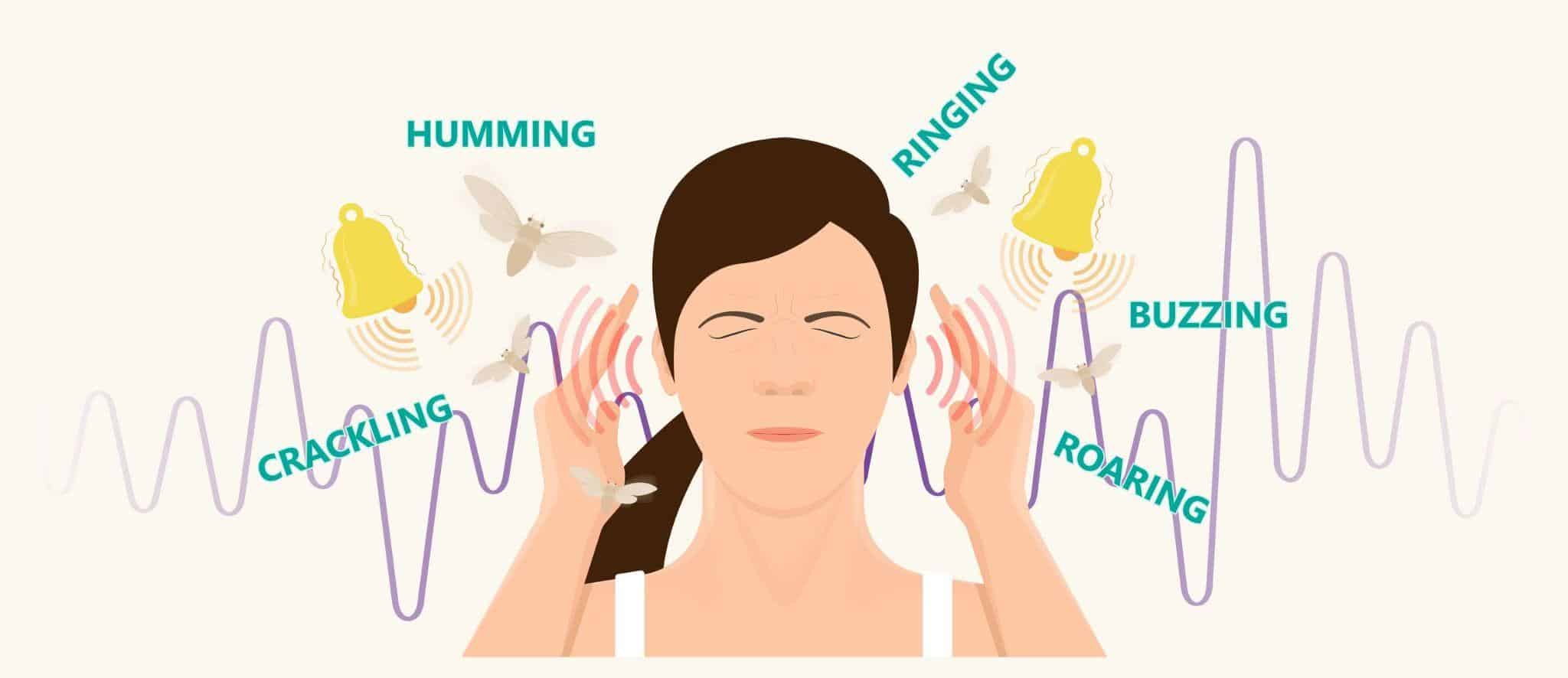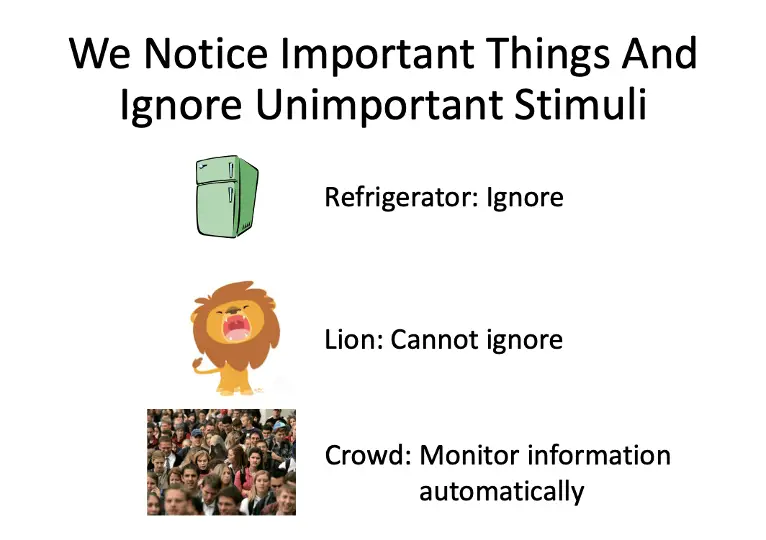How to Use Mindfulness for Tinnitus Relief
This is a guest post from Dr. Amy Sarow, doctor in audiology.
Overview:
– What is Tinnitus?
– Mind and Body Connection
– Mindful Exercises for Tinnitus Relief

What is Tinnitus?
Have you ever noticed after a loud concert that your hearing feels muffled and you hear a ‘ringing’ sound? This is an example of what tinnitus can sound like. Tinnitus is the internal auditory perception of sound despite no external source. Perception of tinnitus varies for individuals and may present as humming, buzzing, chirping, static, crickets, ringing, or music. In most cases, tinnitus stems from sensorineural hearing loss. However, etiologies of tinnitus are wide-ranging and can also include noise exposure history (with or without documented hearing loss), medication, high blood pressure, or other medical conditions. Tinnitus affects many people. Mayo Clinic estimates that as many as 15 – 20% of adults experience tinnitus[1]. In the United States, this is roughly 50 million adults. However, those who experience tinnitus do not always find its presence bothersome. How can it be that some individuals find their tinnitus incredibly bothersome, while others are barely affected by its presence? What separates bothersome tinnitus from non-bothersome tinnitus? In this article, we will examine the mind and body connection as well as mindfulness strategies for reducing tinnitus.
First, let’s examine the ways in which tinnitus sufferers can be affected in their lives. Tinnitus is considered bothersome if it interferes with concentration, sleep, hearing, or mood. The functional impact can manifest as difficulty falling or staying asleep, feelings of anxiety, depression, irritation, or difficulty with attention, memory, or concentration. These are all examples of reactions to tinnitus perception. It can feel as if one causes the other (i.e. tinnitus causes these life disruptions). However, the cause is actually a stress response that causes a physiological reaction in the body. Let’s look at an example.
In the above example (from Dr. Richard Tyler’s “Tinnitus Activities Treatment”), each of these sounds evokes an emotion or response. Although the refrigerator makes a sound, most of us rarely notice it and just consider it part of the background noise in our home. However, the sound of a lion roaring elicits a stress response, which results in changes to the body such as increased breathing rate, elevated heart rate, and increased perspiration. Does the sound of the lion directly cause these effects? No, they result from the stress response. The same is true for tinnitus. Tinnitus in and of itself is a symptom and does not mean that we must suffer from these negative consequences.
Mind and Body Connection
Our psychological state can have a variety of effects on our health and well-being. Have you ever experienced feeling overwhelmed and found it difficult to concentrate or complete tasks? This is an example of the interconnectedness between mental and physical states. When we are experiencing bothersome tinnitus, a stress response is present, which triggers a cascade of physiologic responses in the body. This resulting hypervigilance can be related to uncertainty or general unease. The body then creates a type of feedback loop suggesting continual distress, which can lead to anxiety or unease and thus perpetuates the cycle. Anxiety here often stems from an unpleasant future that the mind creates.
 2
2
This image (from Dr. Richard Tyler’s “Tinnitus Activities Treatment”) illustrates the link between a sound and the resulting emotional response. In this example, the doorbell is automatically associated with one of these three emotions. Over time, these two associations (i.e. the sound and the emotion) can become linked and perceived as one (i.e. the sound is the emotion). When we bring in mindfulness, it is possible to create space between these two separate things and disassociate one from the other. The doorbell on its own is just a sound. Our reaction to it influences our response and our resulting perception of these stimuli. This is where mindfulness can provide some reflection and a tool to examine these connections.
Mindful Exercises for Tinnitus Relief

Be mindful of types of sounds that have a positive association for you. Maybe you enjoy the sound of rain, nature sounds, monk chants, or soft music. Tinnitus is typically most bothersome in quiet. Adding some masking noise that has a positive association for you is an easy way to immediately improve your perception of tinnitus by changing the sound of your environment. Think of the difference between lighting a candle in a dark room versus lighting a candle in a well-lit room. The candle stands out much less in the presence of other light.
Additionally, stress can amplify the underlying presence of tinnitus. Think of this as adding mental “noise” to the tinnitus. Take some time to examine how stress presents itself in your life currently. Breathing exercises or meditation are wonderful ways to calm the mind and nervous system. Anxiety is created when the mind creates an unpleasant, dangerous, or unknown future. Breathing returns us to the present reality and frees us from these thoughts. Start by taking a mental inventory of yourself. What do you notice? Take ten minutes to close your eyes, take some deep breaths, and focus on only your breathing. Allow yourself to simply perceive what comes in, without judging. Examine how you are feeling at the start of the exercise and then after finishing this exercise.
Finally, treat yourself with kindness and be mindful of your body’s physical needs. Many of us have grueling schedules and consequently neglect our body’s needs, prioritizing work or other tasks on our to-do list. Take a mental inventory. Are you engaging mindfully with yourself? Your body requires adequate rest, hydration, physical activity, and nourishment. If these needs are not properly addressed, it will be that much more challenging to feel balanced and focus on the present moment.
Conclusion
As you can see, our physical perception of the world is linked with our mental and psychological state. Taking time to focus on our internal state can have enormous benefits on our overall health, including the degree to which tinnitus interferes with our daily lives. While mindfulness activities may not completely eliminate tinnitus, they can help us to lessen its intensity, break the maladaptive feedback loop, and improve wellbeing. Let’s help each other to optimize our well-being by bringing mindfulness into our daily routine!
-
Mayo Foundation for Medical Education and Research. (2021, February 4). Tinnitus. Mayo Clinic. Retrieved July 9, 2022, from https://www.mayoclinic.org/diseases-conditions/tinnitus/symptoms-causes/syc-20350156 ↑
-
Tyler, R.S. and The University of Iowa, Copyright 2006. ↑

Dr. Amy Sarow, from Live Life Limitlessly, is an audiologist and works with patients to help them engage in health-promoting behaviors and improve their quality of life. On her blog, she promotes mindfulness to affect change and improve quality of life. She lives in Michigan with her husband, dog, and cat.



